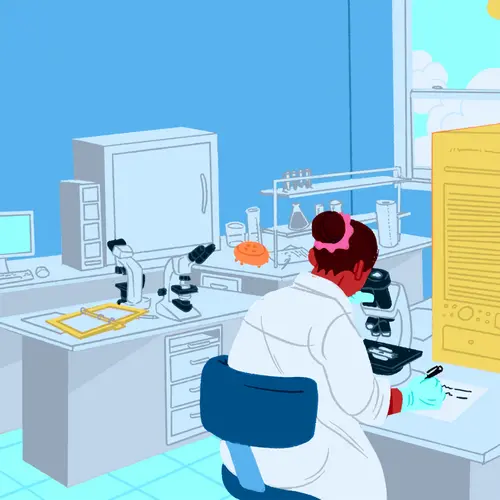If you are diagnosed with metastatic kidney cancer -- cancer that has spread beyond your kidney -- immunotherapy may help you live longer. This type of treatment helps your immune system find and fight cancer cells. But after a while, it can stop working. The cancer can grow or come back. What then?
You have a range of options. Have an honest discussion with your doctor to understand the risks and benefits of each one.
Treatments and Clinical Trials
Advanced kidney cancer, also called metastatic renal cell carcinoma, is tough to cure. By the time you start taking immunotherapy, chances are you have already tried at least one other drug. Still, you may be able to keep fighting the disease with other treatments. In 2018 the FDA approved the combination of two immunotherapy drugs ipilimumab (Yervoy) and nivolumab (Opdivo) for previously untreated advanced renal cell carcinoma.
Several types of drugs can be used for advanced kidney cancer that has been previously treated. Sometimes, if cytokine therapy (an older type of immunotherapy) doesn’t work, you can try a newer immunotherapy drug such as nivolumab (Opdivo). Targeted therapy and chemotherapy may also be options.
You may also be a good fit for a clinical trial. It’s a scientific study that tests new drugs or combinations of treatment to see if they’re safe and if they work.
Palliative Care
Though you may have tough choices to make if your immunotherapy stops working, getting palliative care shouldn’t be one of them. Its purpose is to ease your pain and make day-to-day life better. (You can also get palliative care earlier in your illness.) To control pain, your doctor or a palliative care specialist may recommend:
- Pain medicines
- Surgery
- Radiation
- Bone-building drugs called bisphosphonates (if the cancer has spread to your bones)
- An injection of a pain-numbing medicine into or around a nerve or in the space around your spinal cord. It’s called a nerve block.
Keep in mind that you can’t get this help if you don’t tell your doctor how you feel. And you can’t truly get your pain under control if you don’t take your medicine on the regular schedule that your doctor prescribes. Make sure you talk regularly with your medical team about how you feel.
Hospice Care
Even if your doctor offers new treatment options, you may choose to stop taking cancer-fighting drugs. They may have limited benefits at this stage and many risks and side effects. At this point, hospice care may be an option.
It is an approach that focuses on helping you feel better, not on fighting the disease. Generally, it’s for people who cannot be cured with treatment and are likely to live around 6 months or less. In general, hospice offers:
- Control of pain and other symptoms
- Care in your home or in a hospice center
- Spiritual care
- Regular updates for family members
- Support for your loved ones
Some doctors don’t mention hospice to their patients because they fear it makes them think the medical team is “giving up,” so you may want to ask about this option.
Questions for Your Care Team
You may have a lot of questions when you learn that your immunotherapy isn’t working. Be sure to ask them, no matter how small. It can help prepare you to make the best decision for yourself -- and your family -- about what to do next.
On the other hand, you may draw a blank. Or you may not think of the questions that can help guide your next step. Here are a few to get the conversation started:
- Do I need other tests?
- What other treatment choices do I have?
- What are the pros and cons of other treatments?
- Should I think about joining a clinical trial? How can I enter one?
- What are my options for palliative care?
- Do you recommend hospice? Why or why not?

